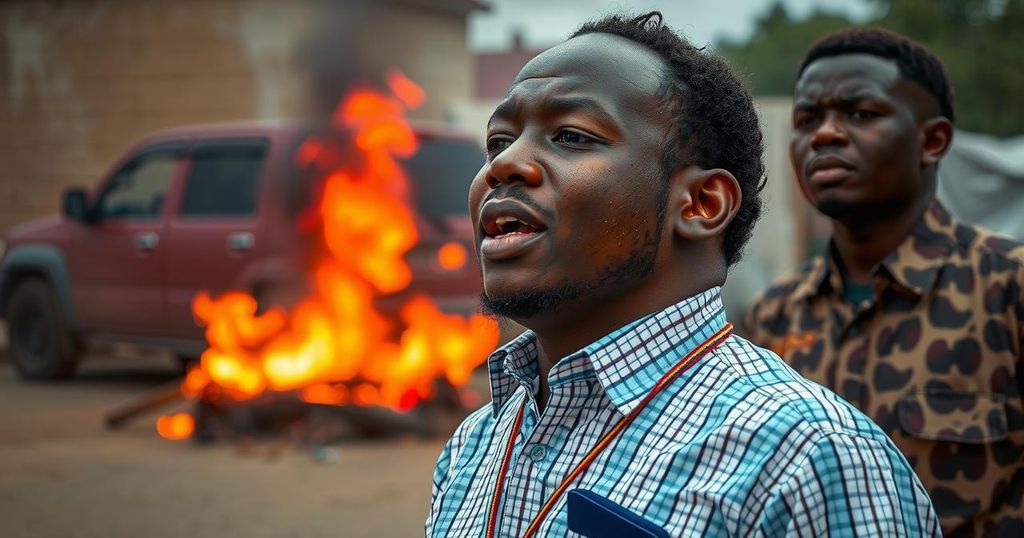Mozambique Faces Violence and Tragedy After Election Ruling
Following the confirmation of Daniel Chapo’s victory in Mozambique’s presidential election by the highest court, violence has erupted across the country, leading to at least 21 deaths, including two police officers. Protests primarily involve supporters of the losing candidate, Venancio Mondlane, showcasing the intense political divisions in the nation.
Violence erupted across Mozambique following the confirmation by the country’s highest court that Daniel Chapo, the candidate from the ruling Frelimo party, won the disputed presidential election held on October 9. Protests led primarily by supporters of losing candidate Venancio Mondlane, who obtained 24 percent of the vote, escalated into violent confrontations, resulting in at least 21 fatalities. This wave of unrest prompted the Interior Minister, Pascoal Ronda, to provide details of the violence, noting that two police officers were among the deceased and numerous injuries were reported throughout the nation.
Mozambique has a history of political tension, particularly surrounding elections, which can often lead to violent disputes as seen in the aftermath of the recent electoral decision. The ruling Frelimo party has maintained a strong hold on power, and any challenge from opposition candidates tends to ignite passions among their supporters. Therefore, the Supreme Court’s ruling confirming Daniel Chapo’s victory has intensified political divisions, reflecting long-standing rivalries within the country’s political landscape.
The tragic outcome of the recent electoral decisions in Mozambique showcases the volatility that can arise from contested elections. With over 21 individuals reported dead, including law enforcement officials, and numerous injuries resulting from the unrest, the situation underscores the urgent need for political stability and dialogue among differing factions. Continued violence poses a threat to both public safety and the legitimacy of the democratic process in Mozambique.
Original Source: www.nytimes.com




Post Comment